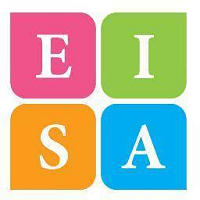 EISA Logo
EISA LogoCfP als PDF: "Strangeness as an Asset - Self-Reflexivity in Global Social and Development Policy"
7th European Workshops in International Studies Brussels, 1-4 July 2020
Submission of abstracts until 13/01/2020 through EISA
John Berten, University of Tübingen, john.berten@ifp.uni-tuebingen.de
Anna Wolkenhauer, University of Bremen, wolkenhauer@bigsss.uni-bremen.de
Aiming at reducing poverty, a myriad of specialised experts in international organisations and beyond produce large amounts of evidence in countries of the Global South, formulating policy recommendations based on ever more sophisticated models and tools designed to maximise effectiveness and ensure efficient spending for desired outcomes. Scholars of social policy and development frequently use quantitative knowledge as a research tool, without reflecting on the conditions of its production. Being closely intertwined, the spheres of policy and the academe in global social policy and development (GSP&D) provide an insightful example of the constitutive role of knowledge production for policies – and ultimately societal relations.
Yet, practices of knowledge and evidence production in GSP&D are undertheorised. Policy diffusion theory, for instance, assumes an unproblematic transmission of policies across borders, not offering insights on how experiences are turned into policy ideas in the first place or how policy knowledge is transformed into objects ready to be transferred to other sites. More particularly, it does not reflect on the limits and power implications of particular disciplines’ ways of knowledge production, including conceptions of objective and neutral knowledge.
From studies inspired by STS we know that power and authority operate in (policy) knowledge production in various ways. As part of a 'politics by other means', (Latour 1988), the knowledge-policy relationship is characterized by assemblages between varied actors, technologies, materials and (performative) practices. Thereby, STS highlights that every knowing means transformation, because every representation of the 'world out there' is actually an intervention in the world, and not least the choice of one’s research methods has real effects.
Nowadays, IR reflexively debates its own colonial origins, racialised power relations and silencing of non-Western contributions. In a constructivist sense, reflexivity matters for critically examining knowledge-power relations within IR as a discipline itself, as well as for studying its research objects. Yet, to free reflexivity from its “meta-theoretical entrapment” (Hamati-Ataya 2013), theoretical elaborations need to be complemented by empirical studies of knowledge production in GSP&D, with the aim to imagine potentially more emancipatory research practices. Due to the intertwined roles of academics in the Global North and policy researchers operating in the Global South, the case of GSP&D is well suited for studying knowledge production from a self-reflexive stance – in IR and beyond.
The workshop welcomes participants interested in exploring the myriad knowledge-power relationships in social policy and/or development, including possibilities for putting reflexivity into (research) action. Ideally, participants should be willing to contribute to a joint publication. Potential questions include:
How can we reflexively theorise knowledge-production in GSP&D?
- What theoretical approaches shed light on the intimate relationship between knowledge and power?
- How do different types of knowledge communicate in GSP&D?
- How can racial and postcolonial asymmetries be factored into the analysis?
- What kind of world are GSP&D scholars creating, and how? Are there alternatives?
How can IR’s meta-theoretical reflexivity inform emancipatory empirical research?
- What does self-reflexivity mean for our own (field) research?
- What kind of reflexive findings could matter for a world beyond the discipline of IR?